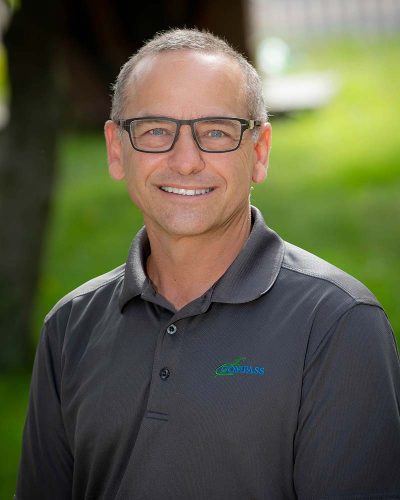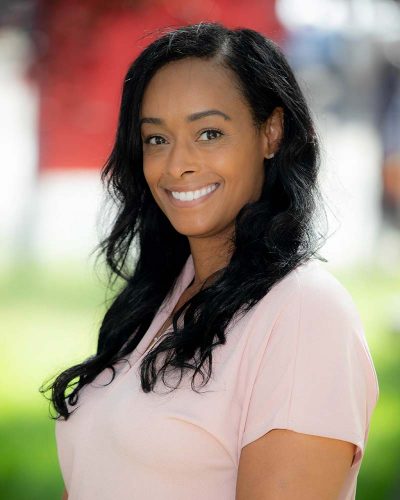School Programs
COMPASS’ hallmark is a team approach, utilizing a diverse staff whose competence, compassion, and commitment are evident in its client-centered approach and interdisciplinary teamwork. Communication, listening to each other, and planning together are essential components of the work that supports the success of the students/clients COMPASS serves. As members of the therapeutic milieu, teachers share responsibility working toward the same goals for their students. Though individual staff members may be specialist within a component of the milieu, (i.e. Educational, Behavioral or Clinical) staff recognizes that, in order to be successful, close and frequent interactions between all team members is critical.
Lower School
Grades: Kindergarten – 8th Ages: 6-14 years old
In the lower school, COMPASS offers an educational therapeutic setting for children with emotional and other disabilities. Small class sizes and access to consistent clinical support allow children to grow academically, behaviorally, and emotionally. COMPASS follows the Massachusetts Curriculum Frameworks and individualizes academic learning to meet the varying needs of students.
Upper School
Grades: 9th – 12th Ages: 14-21 years old
The Upper School Program has two classrooms designed to enrich students’ academic learning environment, while meeting the social/emotional needs of the student. Students’ ages range from 14-21 and come from various backgrounds. Each student has an Individualized Educational Program (IEP) to address social/emotional, behavioral, and intellectual disabilities. Students are divided in to two classrooms based on their grade level (9th and 10th graders together and then 11th and 12th graders together). Both classrooms focus on core curriculum (Math, Science, History, and English Language Arts) along with Computer Literacy, Art, Transitions, and Building Maintenance Repair.
Vocational Program
Grades: 9th – 12th Ages: 14-21 years old
The Vocational Program is comprised of three classrooms: Culinary Arts, Daily Living, and Life Skills. Students within the program are faced with various emotional, behavioral, learning, and medical disabilities. Staff works with all students in these three classrooms to help them fulfill all academic requirements and provide them with tools to build life skills, perform daily tasks, and determine life goals post-graduation.
Students assigned to the Culinary Arts class have expressed a sincere interest in the culinary field. Students tend to be higher functioning and exhibit greater capacity to manage difficulties as they relate to their disability. Students strive to fulfill all academic requirements in addition to obtaining training/certification to acquire essential skills to perform/work in the culinary arts field post-graduation. These students have an experiential opportunity where they prepare weekly meals for the students and staff at COMPASS.
Students assigned to the Daily Living class often present as more delicate with regards to social, emotional, and behavioral processing and interaction with others, responding to difficulties as their relate to their disabilities by avoidance, withdrawal, and are typically slow to escalate to verbal and physical aggression towards self and others.
Students assigned to the Life Skills class often present as more abrasive with regards to social, emotional, and behavioral processing and interaction with others, responding to difficulties as they relate to their disabilities by confrontation and property destruction and are typically swift to escalate to verbal and physical aggression towards self and others.
Transitions Program
Grades: Post-12th Ages: 17-21 years old
COMPASS offers a Transitions program classroom for students who are post 12th grade that need to recover course credits or support on the Massachusetts Comprehensive Assessment System (MCAS) to enable them to obtain a high school diploma.
Students spend part of their school day working on their academic requirements, but the majority of their day is spent at their job placements. COMPASS partners with a large variety of local businesses to employ its students for 15-20 hours per week each, which may include placements at: a rehab facility, an auto-mechanic, a flower shop, a preschool, a landscaping company, restaurants, and a car wash.
For students that are not ready to work in an outside placement, they are employed at COMPASS at either the COMPASS Café, COMPASS Store, or on the Building Maintenance team. Students are paid by COMPASS as they complete hours at these assigned internships.
All students in this program are assigned a COMPASS job coach that helps them focus on gaining experience and learning employability skills that will make them successful in a 21st century working environment, such as problem-solving, working in a team, written and verbal communication, and work ethic.
Summer School
Grades: Kindergarten – 12th Ages: 6-21 years old
With 100% of COMPASS’ students having an Individualized Education Program (IEP) in place, there is a worry that their emotional, behavioral, and academic gains will be lost when they leave for summer vacation because it “breaks the rhythm of instruction, leads to forgetting, and requires a significant amount of review of material when students return to school in the fall” (Cooper, 2003). This is even more significant for COMPASS’ students because they experience disabilities of varying degrees. Taking this all into account, COMPASS provides a Summer School program for approximately 50 K-12 students over the course of a 6-week period (Monday-Thursday). During each week, the students receive academic enrichment, clinical support, and the opportunity to go on field trips to explore educational and social opportunities throughout Massachusetts.
45-Day Interim Placement
Grades: Kindergarten – 12th Ages: 6-21 years old
COMPASS offers 45-day assessments for Massachusetts’ public and charter school students. School districts and charter schools refer students for a 45-day evaluation period to help assess the student’s clinical, behavioral, and academic needs. COMPASS works with the sending school, guardians and all collaterals to help determine the next placement and strategies for success.

